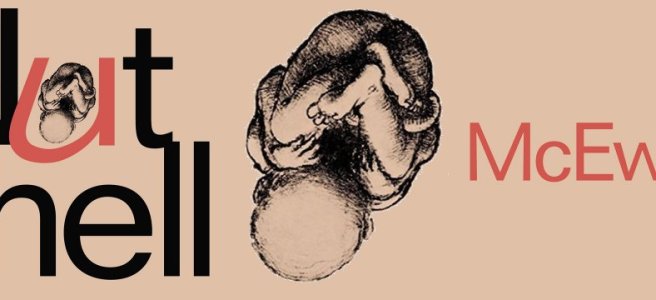I received a copy of this book from the publisher in exchange for an honest review.
 His Bloody Project: Documents relating to the case of Roderick Macrae is great. Let’s start with that. Shortlisted for the Man Booker Prize, this work of fiction (yes, it’s fiction, but I had to double check after the first couple of pages) tells the story of a bloody triple-murder in a remote farming community in Scotland in 1869 as told through witness testimony, medical examiner’s reports, trial transcripts, and the confessions of Macrae himself.
His Bloody Project: Documents relating to the case of Roderick Macrae is great. Let’s start with that. Shortlisted for the Man Booker Prize, this work of fiction (yes, it’s fiction, but I had to double check after the first couple of pages) tells the story of a bloody triple-murder in a remote farming community in Scotland in 1869 as told through witness testimony, medical examiner’s reports, trial transcripts, and the confessions of Macrae himself.
We know at the beginning of the book that Macrae is imprisoned for the crime, and that he doesn’t seem too bothered by that fact, but as the story goes on, we learn more about Macrae’s possible motivations and the events leading up the crime. The waters are muddied as we hear more from other sources about Macrae’s actions and character.
The book succeeds most in creating a vivid and atmospheric world. It’s less of a thriller than a character study as told through the various documents pertaining to the case, and explores some of the fundamental elements of the criminal justice system that we still ask ourselves today. Under what circumstances is a crime understandable or explainable? How does your upbringing impact your choices as an adult? At what age should we be held accountable as an adult? Are humans inherently good or evil?
I think that the best books don’t really answer these questions. They present a story to the reader in such a way as to ask the reader to consider it for themselves, and by the end of the novel, to either have a better understanding of their views, or to walk away from the book ready to admit that they aren’t entirely sure.
I really enjoyed reading this book. Criminology has always interested me, and the details of the crime didn’t bother me too much. If you have a weak stomach, you might want to skim over those parts, but I think the violence does add something to the story. We spend a lot of time with Macrae before we hear any real details about the crime, so when it is discussed, the brutality only serves to make the plot and the character development more rich. I found that although there were a few parts that lagged, by the time I realized that I wasn’t as engaged, the next section was only a few pages away and the story would transition to another document type or point of view.
While the book is quite literary (in my mind, it is, whatever that means…), I think it’s one of the more genre-focused books I’ve noticed on the Man Booker lists. The first half of this reads more like historical fiction (which the Man Booker judges seem to like more than say, science fiction) but there’s also a detective story thread that runs throughout, making it more fast-paced than your average work of straight-up literary fiction. I really appreciated reading something different for this prize.
I’m always curious about how other readers approach awards. I pay the most attention to the Man Booker Prize, from the time the longlist gets announced to the winner. I also tend to keep track of who wins the National Book Award, the Scotiabank Giller Prize, and sometimes the Pulitzer. Part of this is surely because I’m a librarian and avid reader, and so this sort of news is my jam, but I always buy a copy of the Man Booker winner if I don’t already have it, and I’ve been working my way (very slowly) through the Pulitzer winners since 1990. I don’t think award-winners are better than other books in so many ways – I think for me it’s just a point of interest and a desire to have my own opinion about the “big” books.






 Ian McEwan is one of my favourite authors. Last year I made plans to read his entire back list, but bailed quickly because I didn’t want to run out of stories to read. Atonement is perfection, and last year I really enjoyed The Children Act, so I was thrilled to see another new release this year.
Ian McEwan is one of my favourite authors. Last year I made plans to read his entire back list, but bailed quickly because I didn’t want to run out of stories to read. Atonement is perfection, and last year I really enjoyed The Children Act, so I was thrilled to see another new release this year.